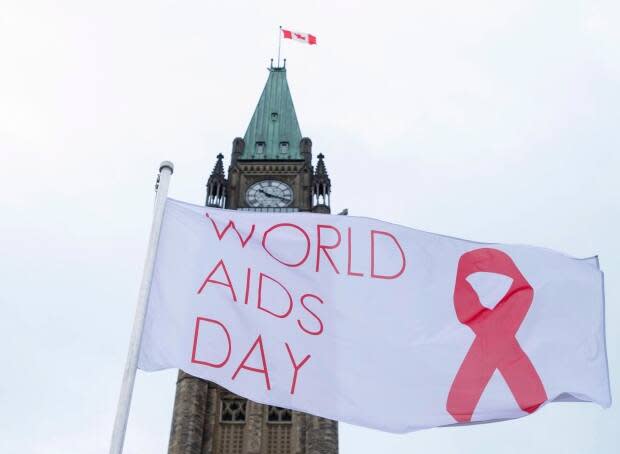2nd wave of virus could jeopardize 4 decades of work on HIV/AIDS, expert warns
New HIV infections are at their lowest rate since the disease first hit British Columbia, according to top researcher Dr. Julio Montaner.
Last year, on Dec. 1, World AIDS Day, Montaner declared the epidemic of HIV/AIDS over in B.C. because infection rates had fallen so low. This year, despite concerns that COVID-19 restrictions would get in the way, the spread of HIV has declined even further.
Montaner is the executive director and chief physician at the B.C. Centre for Excellence in HIV/AIDS and the head of the HIV/AIDS Program at St. Paul's Hospital.
He was instrumental in turning HIV infections from a death sentence to a manageable condition. Now, he is concerned the success he has helped create in B.C. is not happening elsewhere.
"The rest of the country and the rest of the world are falling behind," said Montaner.

In April, after pandemic restrictions came into place, Montaner and others were concerned. HIV testing rates fell and people struggled to access health care.
After four decades of hard work on the AIDS pandemic, to Montaner, it was "unthinkable."
Now, he worries, we squandered the opportunity to prepare for the second wave of COVID this past summer, when new COVID infections were low.
"We wasted the summer celebrating our success without taking responsibility collectively that we need to be cautious," he said. "I am very concerned that the way things are going with shutdowns and lockdowns and competition for health-care resources."
Montaner worries B.C. is not up to speed on contact tracing, hasn't managed to expand testing and implement rapid testing, approaches he calls "game-changers" in controlling HIV.
"We don't seem to learn from the past," he said. "It's very frustrating."
Fight against HIV/AIDS 'in peril'
Montaner is hopeful incoming U.S. President Joe Biden will show leadership internationally on HIV/AIDS.
He blames the lack of leadership under President Donald Trump, the financial crisis, and now COVID, for stalling the global effort.
"We have the threat of COVID today that, unfortunately, has taken all of the oxygen out of the room and made it so HIV services are in jeopardy." said Montaner.
He says the next step is to "recapture the imagination" of world leaders who have let HIV/AIDS fall off the agenda.
"We know what to do. All we have to do is implement it."
To hear the complete interview with Dr. Julio Montaner on CBC's The Early Edition, tap the audio link below:

